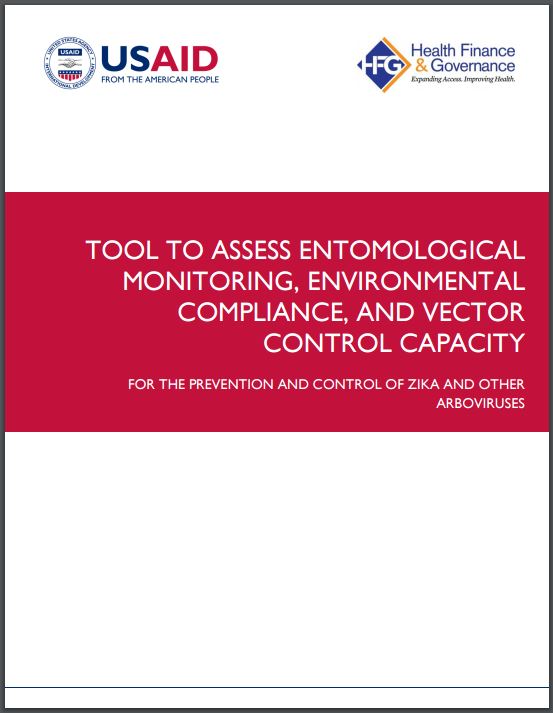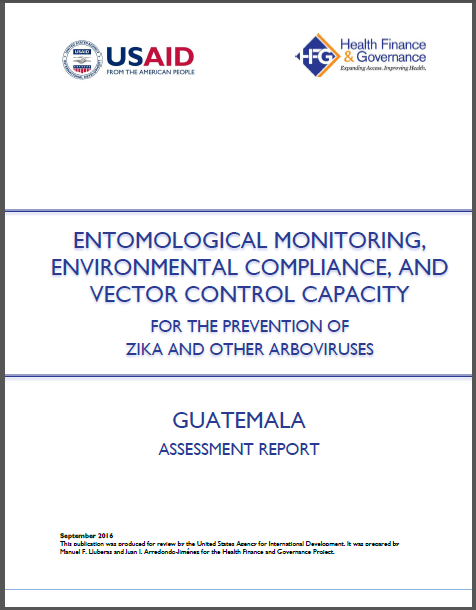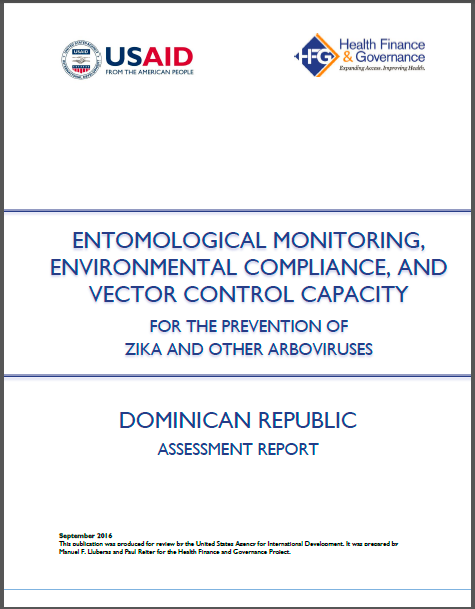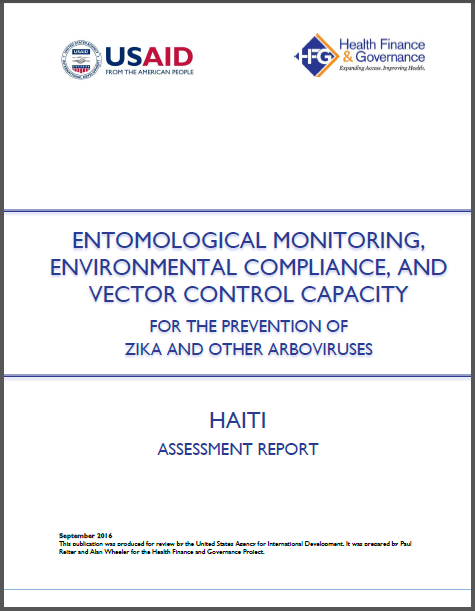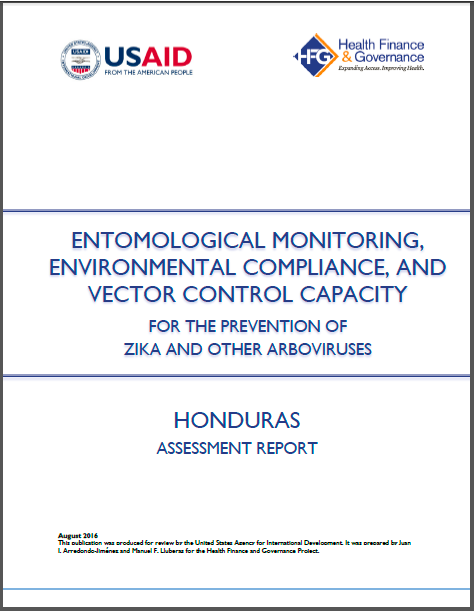Aedes Vector Control Capacity in Latin America and the Caribbean – Five Country Assessments
Categories: Announcements, Publications, Vector-borne Diseases, Where We Work
The first case of local, vector-borne transmission of the Zika virus in the Americas was identified in May 2015 in Brazil. By July 2016, the virus had spread to nearly all Zika-suitable transmission zones in the Americas, including the majority of countries and territories in the Latin America and the Caribbean region. Governments in the region face a formidable challenge to minimize Zika transmission and limit the impact of Zika on their populations.
USAID supports efforts to strengthen the region’s Zika response through targeted technical assistance, stakeholder coordination, and implementation of key interventions. The USAID-funded Health Finance and Governance (HFG) project provided support as part of the USAID response, designing an assessment tool and using the tool to conduct rapid assessments on vector control and entomological monitoring of Aedes mosquitoes in five countries in Latin America and the Caribbean.
The assessments in the Dominican Republic, El Salvador, Guatemala, Haiti, and Honduras, review capacity strengths and gaps in the five counries and propose recommendations to improve country readiness to prevent and control Zika and other arboviruses.




